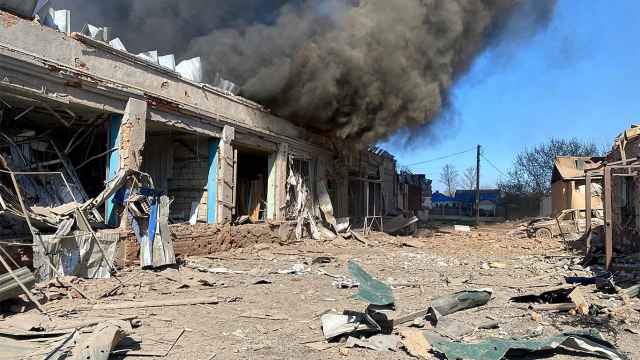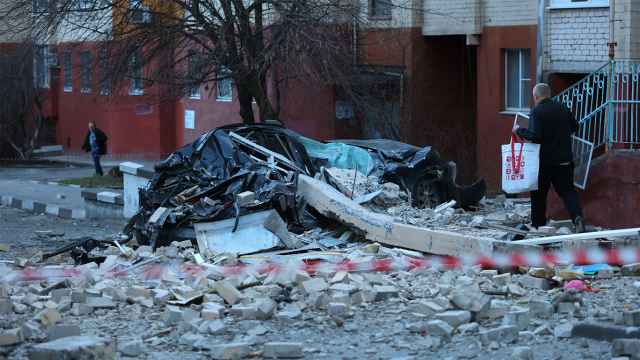As I watched neo-Nazis shouting fascist slogans at the annual Russian March in Moscow on Monday, I was reminded of when I was attacked by nationalist extremists during a recent political protest supporting a leftist political agenda.
I was suddenly surrounded by 15 people in masks who appeared out of nowhere and shouted "Death to the red plague!" and "White power!" before attacking us. An all-out brawl ensued. Some fell to the pavement, while others ran off. I remember pandemonium, fear and confusion. Although we were outnumbered, we managed to nab one assailant. His friends quickly disappeared into the crowd.
When we tried to hand him over to the police, the officers turned away and refused to write up a report. A few minutes later, a black Volga pulled up bearing two men in suits and dark glasses in the front seat. They claimed to be journalists and suggested we release the man.
The close relationship that intelligence agencies and the police maintain with the far right has never been a secret in Russia. Those ties have always been considered something unpleasant, even a little embarrassing, but nothing dangerous. That is, until now.
Russian authorities responded to the street protests in 2011-2012 by stepping up repression. They filed criminal charges against several prominent activists and opposition leaders. Officials sent Pussy Riot members off to labor camps and then arrested almost 30 organizers and participants of the May 6. 2012, mass street rally against President Vladimir Putin. The victims of that crackdown included Left Front leader Sergei Udaltsov and well-known anti-fascist Alexei Gaskarov. The authorities imposed a ban on the Left Front organization and brought repressive measures to bear against other groups that oppose nationalism and xenophobia, paralyzing their activities.
Two weeks ago, a crowd of people chanting racist slogans rioted in Biryulyovo, one of the poorest districts in Moscow. They were protesting the alleged murder of a Russian man by a migrant from Azerbaijan. The family of the deceased warned of the danger of exploiting their son's death to fuel anti-migrant sentiments. Their primary complaint was directed against the corruption of local authorities. Yet the police not only permitted far-right activists to wage their riot, but blithely looked on as the mob ransacked a street market run by migrants. In the end, the police released most of the few rioters they had detained.
This is no different than the latter era of tsarist Russia 100 years ago when the police provoked ethnic pogroms and then used the results for their own propaganda purposes. Today, the state-controlled media depicts how the police have cracked down on illegal migrants. The authorities first stoke the public's xenophobic fears and then exploit them by rallying the people around the image of a powerful Kremlin that can protect them from the migrants with the help of repression and force.
The problem is that this type of propaganda comes at a very high price. The level of xenophobia and intolerance has risen significantly. Seven years ago, only 14 percent of the population supported the annual Russian March by nationalist extremists. Now, a recent Levada poll indicates that the figure has grown to 40 percent.
In the absence of any alternatives and under the influence of the powerful government propaganda machine, Russian society is sliding dangerously toward fascism, with all of its classic features: state-sponsored violence, xenophobic hysteria and an authoritarian regime.
To halt Russia's downward spiral, the ruling class must stop using repression as a means of persuasion and those forces within Russian society that naturally resist nationalism and dictatorship must shake off their paralysis, resist and join the protests.
Alexei Sakhnin, a political activist from the Left Front movement, is living in exile in Sweden.





